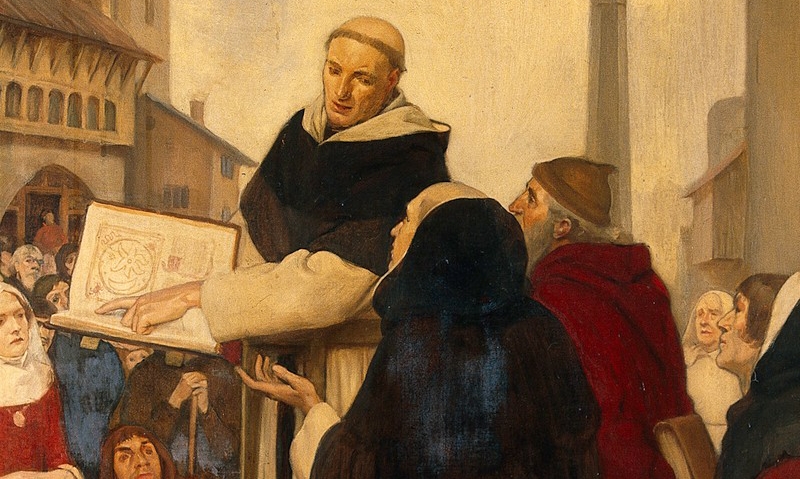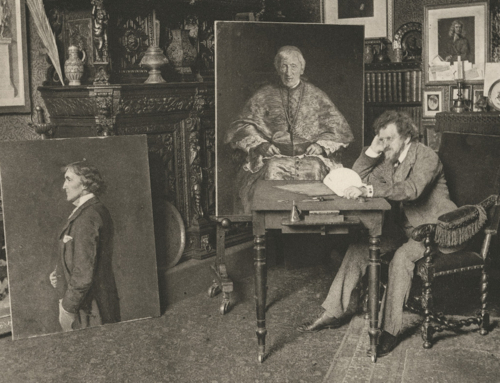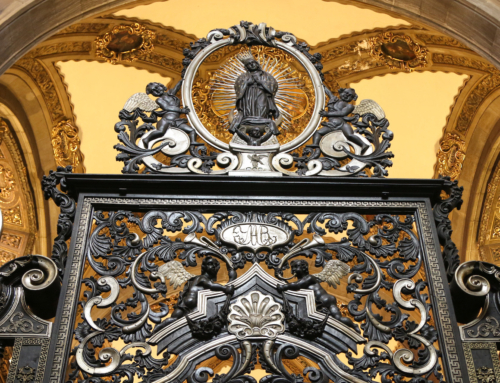On March 7, 1274, Saint Thomas Aquinas died. His teacher Saint Albert the Great was around 80 years old at the time. Tradition tells us that St. Albert was profoundly affected by St. Thomas’ death, as seems natural for men whose intellectual relationship and relationship in the Order was so close. In fact, according to the process of canonization of St. Thomas, Br. Antonius de Brixia reports that St. Albert received supernatural knowledge of St. Thomas’ death the very hour he died. Saint Albert’s words relating this death to the brethren in Cologne were as follows: “I tell to you all grave news, for Br. Thomas Aquinas, my son in Christ, who was the light of the Church has died, and this has been revealed to me by God.” Saint Albert was, in many ways, the intellectual father of St. Thomas, who received his teaching and carried it forward. Saint Albert, therefore, must have been proud of all that St. Thomas had accomplished in the short span of years he had been allotted.
Soon after St. Thomas’ death, the bishops Stephen Tempier of Paris and Robert Kilwardby of Canterbury, himself a Dominican, began to issue condemnations that, while not mentioning St. Thomas by name, censured several positions held by him. Through these condemnations, St. Thomas was associated with the Averroism of Siger of Brabant, the primary target of Tempier’s condemnations. Given that Siger contradicted both St. Thomas and St. Albert and that St. Thomas wrote explicitly against Siger, St. Albert was understandably outraged by this association. To add insult to injury, the condemnation issued by Stephen Tempier was promulgated on March 7, 1277, the anniversary of the death of St. Thomas. Seeing the good name of his student at risk, the old teacher made the long journey from Cologne to Paris. The distance between the two cities is between 250 and 300 miles. Saint Albert made this journey in the middle of winter on foot—the early constitutions forbade travel on horseback—at the age of 84.
The great humility and love of St. Albert is clearly displayed in the care he had for the work and memory of St. Thomas. Saint Albert bears the title of “the Great” not only because of his incomparable learning and mastery of every subject but also for this humility. Having already been shown a humble man by retiring from the episcopacy, he crowned that humility in spreading the works of his student. In the normal course of affairs, it is the student who hands on the teachings of his master: only the fullness of the virtue of humility could recognize and accept that the student had surpassed the master. Furthermore, in accepting so fully the achievement of his student that even in his old age he should deny the natural desire to complete unfinished endeavours and instead focus on the elevation of his student’s work, St. Albert demonstrated a supernatural humility. Such humility aided St. Albert in showing forth the love he had for his student and son St. Thomas.
✠
Image: Ernest Board, Albertus Magnus expounding his doctrines of physical science in the streets of Paris ca. 1245. Wellcome Collection (CC BY 4.0).







